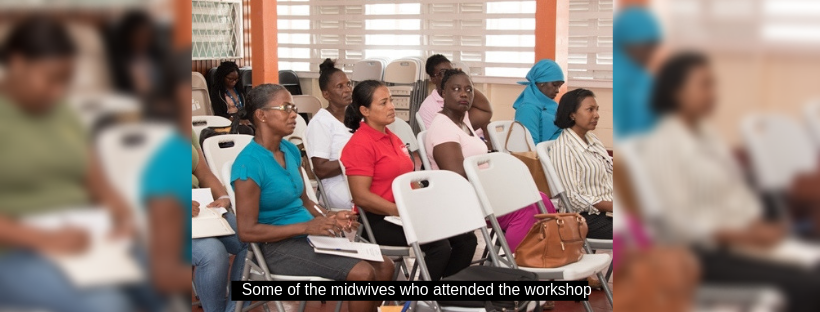Even as the issue of maternal and infant mortality remains high on the Ministry of Public Health’s agenda, a recent one-day workshop was conducted for midwives within the public health sector from across the country.
Hosted at the Alexander Street, Georgetown Guyana Nurses Association (GNA) Hall, the initiative forms part of the Ministry’s effort to re-educate midwives on the administration of the appropriate care to mothers and their newborns.
Midwifery Adviser Mandy La Fleur said the workshop is a continuation of the association’s effort to ensure proper healthcare services are provided.
“We have a system in place so it is the plan of the Midwife’s Association to empower our regional focal points [midwives] with the knowledge and skills so that you can go back and be able to impart this knowledge to your colleagues,” she told those gathered. La Fleur noted that it is the hope of the association that each representative will impart their knowledge and skills to their colleagues.
The midwifery adviser stressed, “Midwives were needed in the beginning and so shall we be in the end. We need midwives more than ever as they play a critical role in the delivery of the child.”
According to facilitator Dr Narine Singh, focus will be placed on Partogram, also known as partograph, which is a composite graphical record of key data (maternal and fetal) during labour entered against time. He explained that this process will include statistics such as cervical dilation, fetal heart rate, and duration of labour, among other signs.
It was highlighted by La Fleur that year 2020 will focus on the development of the country’s nurses and midwives.
Deputy Chief Medical Officer Nalini Sutton expressed gratitude for the support to re-educate the relevant stakeholders as it is the ministry’s vision to assist in the development of healthcare providers.
“This is an important aspect for our midwives today because what you find is when the midwives leave the classroom and they graduate, there is a whole different scenario and so this helps to re-educate them because there are so many conditions when they enter the work environment,” she noted.













